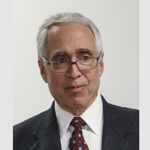Unfinished Business
The bad news is that the man most responsible for this turnaround, IRS Commissioner Charles Rossotti, is about to leave at the end of his five-year term, having told the administration that he wants to step down for personal reasons. The White House has already started searching for his successor, hiring a Dallas-based recruiting firm to do the job. The firm quickly betrayed the nature of its mission by inadvertently leaking an e-mail that said the president prefers someone who is "definitely not a tax attorney and does not need to have any in-depth exposure to the tax system or code." Early indications are that loyalty to the Bush administration is going to be much more important than management expertise. The taxpayers deserve better.
Rossotti came to the agency under the worst of circumstances. The agency was battling a taxpayer abuse scandal, its toll-free telephone lines were clogged, and its organization chart was harder to navigate than the Amazon River. Its workload was growing while its staff was being cut.
It is one thing to attempt a turnaround when you have a clear mission, strong support and rising appropriations. It is quite another when you are about to take the helm of America's most despised government agency. Rossotti faced two choices: tinker around the edges of his embattled agency or embrace top-to-bottom reform. Rossotti took the latter course and that has made all the difference. Rossotti's turnaround strategy involved four elements:
- Flatten the IRS' hierarchy, removing entire layers of needless management from the agency's organization chart. The IRS abolished its regional offices last year and has ironed out the layers at the district and field levels. Where the agency once had five layers of management in its service centers and call sites, it now has three.
- Consolidate the agency's loose collection of field offices into an integrated whole. Before Rossotti arrived, many IRS offices might as well have been flying the skull-and-crossbones instead of the agency flag. Many had incompatible e-mail, phone and accounting systems.
- Organize the agency around taxpayers, not chapters of the tax code. Instead of a hierarchy divided into four regions, 35 districts and hundreds of field offices, Rossotti established four divisions to serve small businesses and the self-employed, large and mid-sized companies, individual wage and investment earners, and tax-exempt and government entities.
- Focus on a balanced set of performance measures rather than the small sums that come from property seizures and enforcement of tax laws (the underlying causes of the taxpayer abuse that exploded into a national scandal in 1997). Rossotti placed a premium on service. That meant ensuring fairness and consistency across field offices and throughout the corps of revenue agents.
But there are signs of turnaround.
The IRS cannot account for 2,200 of its more than 160,000 computers. But, five years ago, the agency did not have the systems to account for any of its computers in a timely fashion, let alone find out which ones had been lost or stolen. Today, the agency knows exactly where 98 percent of its computers are, including all but 19 of the 38,600 computers installed in the last two fiscal years. That is a loss rate of just one out of every 2,000 of its newest computers, a rate well below that of most private companies.
The turnaround is far from complete, however. Computer modernization is still under way, and the IRS has yet to complete the cultural transformation needed to make the changes stick. It is not enough just to change the organization chart and utter a new motto, and Rossotti knows it. That is why Rossotti's impending departure is so troubling. Few private companies would ask their chief executive officer to design, launch and complete a transformation in five years, then replace him only a year after the big reorganization took place. They would keep the CEO on long enough to complete the transformation. Much as they long for a Republican at the IRS' helm, administration officials would do well to ask Rossotti to stay a year or five longer.
Paul C. Light is vice president and director of governmental studies at the Brookings Institution.
NEXT STORY: Government’s Next Great Achievements







